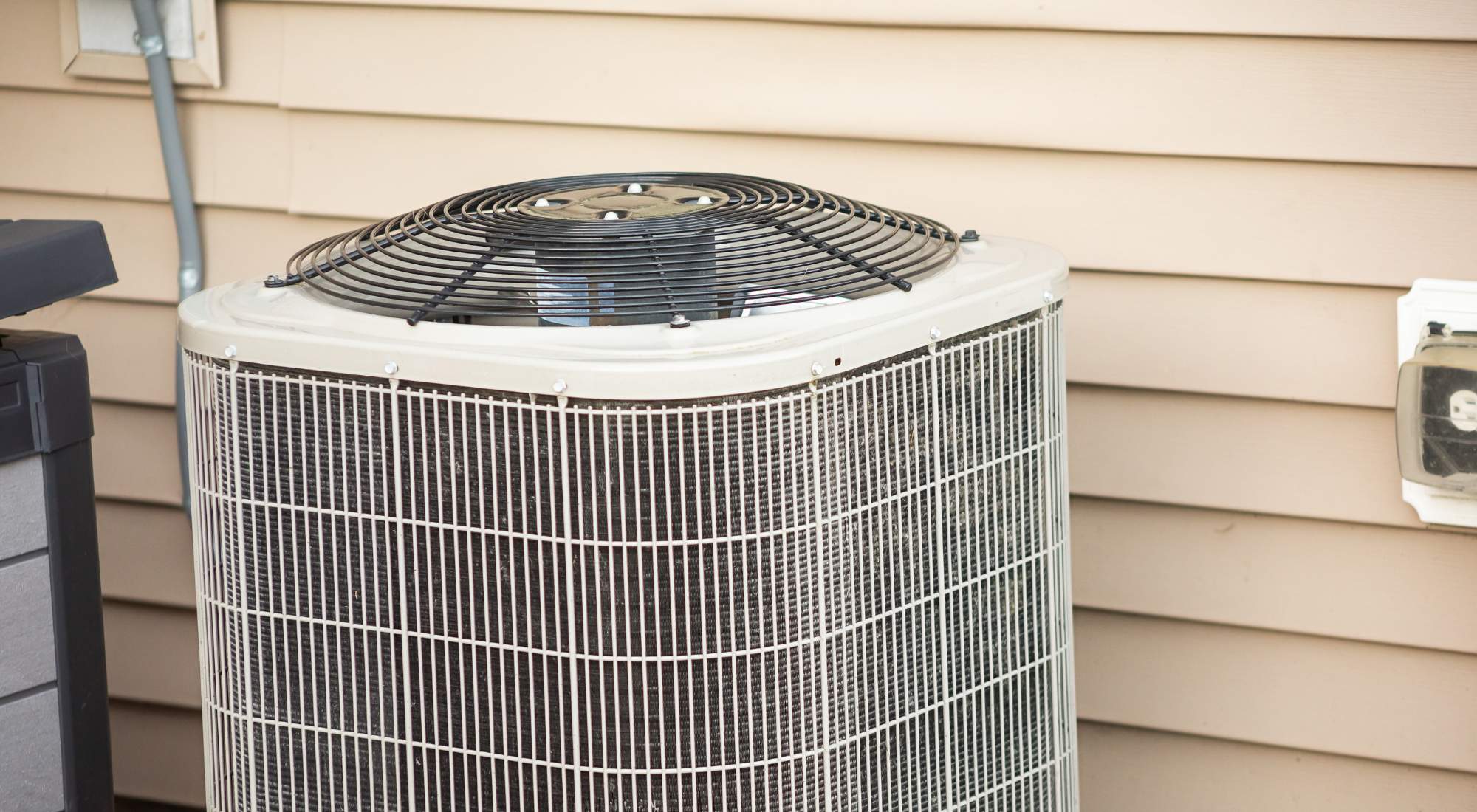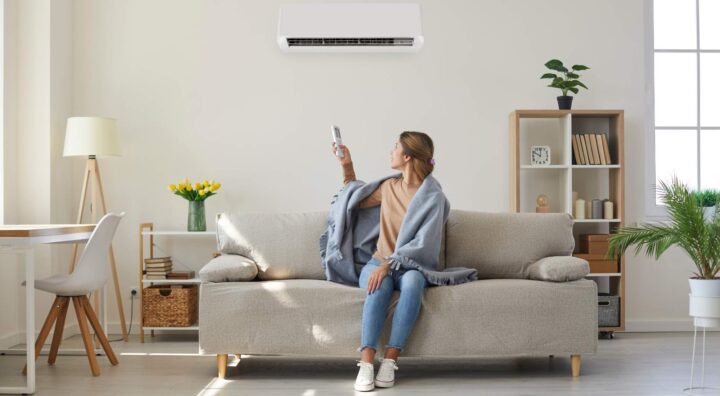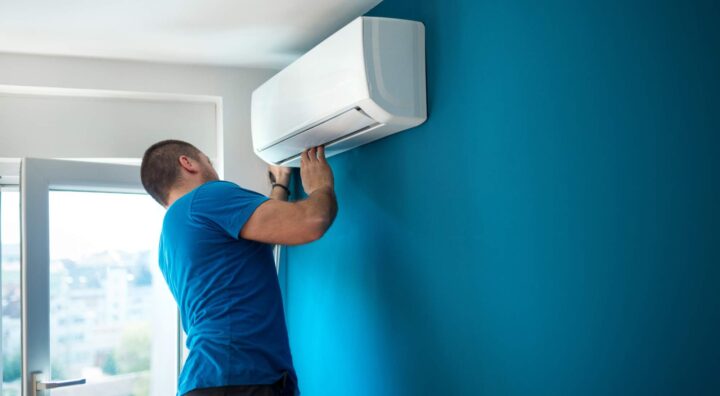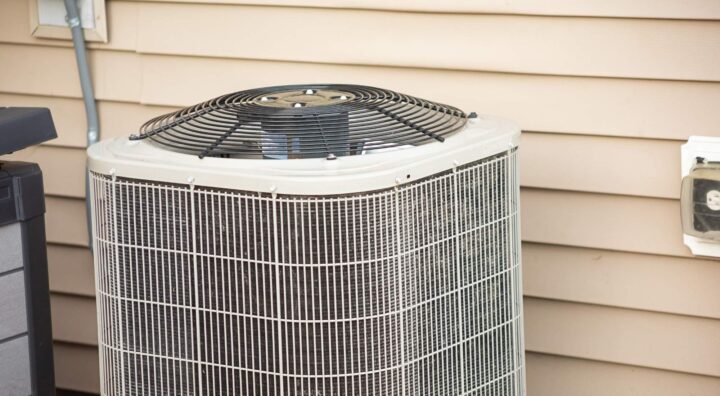
Picture this: It’s the hottest day of the year. You crank on your AC, but instead of that refreshing blast of cool air, you get a frustrating hum and… nothing.
Your comfort is slipping away, and the culprit might be something small but mighty — the capacitor.
Let’s dive into the world of AC capacitors. We’ll explain how they keep your system running strong, what happens when they start to fail, and the key signs to watch for. The trusted HVAC experts at AAA Heating and Cooling clearly explain all this and more.
Table of Contents
- Understanding the Role of an AC Capacitor
- What Does an AC Capacitor Do?
- Why Your AC Depends on a Healthy Capacitor
- How Do I Know If I Need a New AC Capacitor?
- AC Capacitor Replacement: What To Expect
- How To Prevent AC Capacitor Failure
- Think You Might Have a Bad AC Capacitor? Fix It Fast With AAA Heating and Cooling in Portland
Understanding the Role of an AC Capacitor
What Is an AC Capacitor?
An AC capacitor is a small device in your air conditioner that stores and releases electrical energy to help the motors start and run efficiently. It works like a temporary battery, giving a quick boost of power when needed.
There are usually two types in an AC unit: the start capacitor helps get the motor running, and the run capacitor keeps it running smoothly. Without a working capacitor, your AC’s fan or compressor might struggle to start or stop working altogether.
In technical terms, a capacitor stores and releases electrical energy. Specifically, it provides the initial surge of power needed to start and keep the compressor and fan motors running smoothly. These motors require a boost of electricity to overcome inertia and get spinning. The capacitor delivers this boost by temporarily storing an electric charge and then releasing it at just the right moment. Without this “jumpstart,” the motors would struggle to start or might not run at all.
What Does an AC Capacitor DO?
To understand the role of a capacitor in your AC system, imagine trying to start a car without a battery. You might have all the mechanical parts in place, but without that initial spark and steady power, nothing’s moving. That’s exactly what a capacitor does for your air conditioner. It provides the jolt to get things going and the support to keep everything running smoothly.
Here’s how it works, step by step:
- Startup: The Initial Boost
When your air conditioner turns on, its motors (especially the compressor and fan) need a quick surge of energy to start moving. This is where the start capacitor comes in. It delivers a high-voltage burst to get those motors up and running. Start capacitors:
- Provide a strong, quick burst of electricity
- Are only active for a few seconds during startup
- Help the compressor motor overcome initial resistance
- Wear out faster due to the intense energy load
- May serve both the fan and compressor motors
- Voltage Boost: Keeping Things Moving
Once the motors are running, they need a steady flow of electricity to maintain smooth, efficient operation. That’s the job of the run capacitor, which stays active throughout the cooling cycle. Run capacitors:
- Deliver a continuous, lower-voltage supply
- Help motors run at a consistent speed
- Reduce strain on the system and improve energy efficiency
- Typically last longer than start capacitors
- Continuous Operation: Reliable Cooling
With both capacitors doing their part, your AC runs efficiently and reliably. But if either one starts to fail, your system might struggle to begin, cycle on and off, or shut down entirely, especially under heavy demand in hot weather.
Just like a car without a good battery, an AC without a healthy capacitor can’t perform when you need it most. It might look like a small part, but it delivers the power and consistency your entire cooling system depends on.

Why Your AC Depends on a Healthy Capacitor
The Link Between Capacitor Function and Cooling Performance
A capacitor might be small, but its impact on your AC’s performance is huge.
When it’s working properly, it powers the compressor and fan motors, helping your system maintain strong airflow, consistent temperatures, and energy-efficient operation. But when a capacitor starts to fail, those motors struggle to start or run at full capacity.
As a result, you might notice weak airflow from your vents, uneven or warmer indoor temperatures, and longer cooling cycles. This not only makes your home less comfortable but also forces your AC to work harder, driving up energy bills and increasing wear on the system.
Common Systems Affected by Capacitor Issues
When a capacitor starts to fail, it doesn’t just impact one part of your AC — it can knock out multiple key components. Here are the most common systems affected, and what can happen when things go wrong:
- Compressor – This can fail to start or short cycle, leading to warm air blowing from the vents. In some cases, it may overheat and shut down completely.
- Blower motor (indoor fan) – It may run slowly or not at all, reducing airflow and causing rooms to stay stuffy and warm.
- Condenser fan motor (outdoor fan) – Without proper cooling of the condenser coil, your AC can overheat, trip the breaker, or stop running entirely.
We’ve seen homeowners replace full units after ignoring a simple capacitor issue. Routine inspections can catch these small problems early before they turn into big repair bills or system failure during a heatwave. Trust AAA Heating and Cooling for your routine inspections and troubleshooting when you notice your system operating irregularly.
How Do I Know If I Need a New AC Capacitor?
Keep an eye out for the following signs that you could have a problem with the capacitor:
- AC won’t start
- Clicking or humming sounds
- Blowing warm air
- Unusually high energy bills
- Frequent short-cycling
- Bulging capacitor casing
- Leaking fluid from the capacitor
- Visible scorch marks or corrosion on the capacitor
A quick visual inspection can sometimes reveal a failing capacitor. With the power completely off, look for signs like a swollen top, leaking oil, or scorch marks around the component. These are red flags that something’s wrong.
However, don’t attempt to replace a capacitor yourself. They can store high-voltage electricity even after the system is shut down, making DIY repairs dangerous without the right tools and training.
Concerned about what you see? Play it safe. Contact the experienced team at AAA Heating and Cooling to schedule a professional inspection and get your system back on track before a minor issue turns into a major repair.
Can AC Run Without a Capacitor?
No, your AC can’t run properly without a functioning capacitor.
Without it, the compressor and fan motors won’t start or stay running, which means no cooling. Even if the system powers on, it may short cycle, overheat, or fail entirely.
AC Capacitor Replacement: What To Expect
Cost To Replace a Capacitor
Replacing an AC capacitor typically costs between $100 and $400, including parts and labor. The capacitor itself is relatively inexpensive, usually $8 to $45, but professional installation ensures safe handling and proper function.
Replacing a weak capacitor early can save your compressor from overheating or burning out, which can cost $1,000 or more to replace. A small fix now can prevent a big repair later.
How Long Does an AC Capacitor Last?
Most AC capacitors last 5 to 10 years, but their actual lifespan depends on several key factors:
- Usage: The more frequently your AC runs, especially in hotter climates or during long summer seasons, the more stress it places on the capacitor. Systems that cycle on and off often may wear out capacitors faster.
- Weather conditions: High outdoor temperatures and direct sun exposure can cause capacitors to overheat and degrade more quickly. On the flip side, areas with milder climates may see capacitors last longer.
- Power quality: Voltage fluctuations, power surges, and poor electrical grounding can damage a capacitor over time. Homes without surge protection are especially at risk.
Even if a capacitor hasn’t completely failed, it can weaken over time, leading to reduced system performance, short cycling, or motor strain. That’s why routine HVAC inspections are important to help catch early signs of capacitor wear before they turn into system-wide issues.
How Technicians Test and Replace a Capacitor
When technicians test a capacitor, they first turn off the power to your AC unit to ensure safety. Using a specialized multimeter called a capacitance meter, they measure the capacitor’s ability to store and release electrical charge. If the readings fall outside the manufacturer’s specifications, it means the capacitor is weak or failing. Technicians will also perform a visual check for signs like bulging, leaks, or corrosion.
If replacement is needed, the technician safely discharges the capacitor to remove stored electricity before removing the old part. They then install a new, correctly rated capacitor and test the system to confirm everything runs smoothly.
Hiring trusted professionals like our team at AAA Heating and Cooling means you get expert diagnosis, safe handling, and reliable repairs, keeping your AC running efficiently and your home comfortably cool. In Portland, residential air conditioner maintenance is simple — Call AAA today!
How To Prevent AC Capacitor Failure
Regular Maintenance Is Your Best Defense
Regular maintenance is key to preventing capacitor and other AC issues. A seasonal HVAC tune-up keeps your system in top shape by:
- Cleaning coils
- Checking airflow
- Performing electrical testing

Surge Protectors and Voltage Regulators
Power surges, or sudden spikes in electrical voltage, can cause significant damage to your AC’s capacitor by overloading its delicate internal components. This extra stress can quickly shorten the capacitor’s lifespan, leading to premature failure and costly repairs.
Installing surge protection helps shield your HVAC system from these harmful voltage spikes, preserving the capacitor’s health and keeping your air conditioner running smoothly for longer.
Think You Might Have a Bad AC Capacitor? Fix It Fast With AAA Heating and Cooling in Portland
If your AC is struggling to start, blowing warm air, or making unusual noises, it’s frustrating and uncomfortable, especially during Portland’s warmer months.
Don’t wait for a small capacitor issue to turn into a major breakdown that leaves you sweltering. At AAA Heating and Cooling, we understand how important a reliable, efficient cooling system is to your comfort and peace of mind.
Our expert technicians are ready to quickly diagnose and fix capacitor problems with care and professionalism. We’re committed to getting your system back up and running so you can enjoy a cool, comfortable home without the stress.
Reach out to AAA Heating and Cooling today for fast, trustworthy service you can count on.

